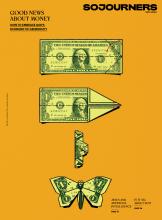GROWING UP, I didn’t understand why boys obsessed over girls. “Oh, you will when you’re older,” my dad kept telling me into my early 20s. Only then did I confront what I should’ve known long ago: I’m gay — but not just gay. I am romantically, but not sexually, attracted to men. My father promised that (hetero)sexual desire came with manhood, so am I less of a man?
Many conservative Christian marital counselors and sex manualists have implied that the answer is “yes.” John Eldredge, author of Wild at Heart, wrote that men “come alive” when they have a “a beauty to rescue.” In The Act of Marriage, Tim and Beverly LaHaye wrote that men’s “need for romantic love is either nonexistent or minimal.” Willard F. Harley Jr., in His Needs, Her Needs, wrote that sex is the “first thing [men] can’t do without.” Stephen Arterburn and Fred Stoeker, in Every Man’s Battle, wrote that “maleness” is heterosexual desire. Their message is clear: Sex is essential to God’s vision for manhood.
But every person can live a full, godly life without sex and romance, whether one has desires for both, either, or neither. For many asexual believers, both secular and so-called Christian understandings of sexuality have been insufficient and harmful to them — and to everyone. Perhaps understanding asexuality can lead Christians toward a more inclusive, beautiful, and faithful set of sexual ethics.
Read the Full Article

